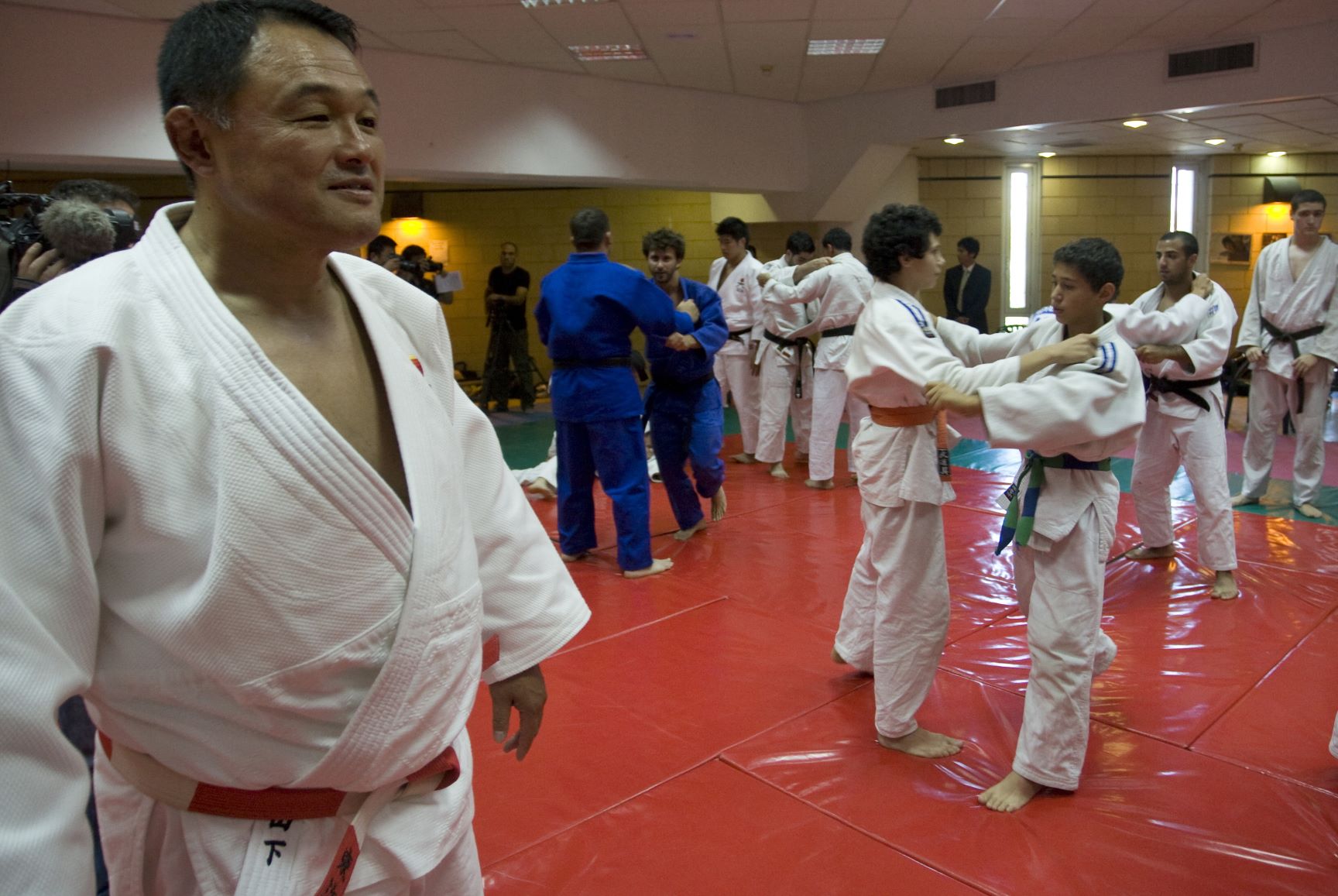
- ARAB NEWS
- 04 Jul 2025

Alaa Abdel-Ghani
An injured athlete is like a cornered tiger … vulnerable. Not all the time.
In the 1984 Los Angeles Olympics, overwhelming favorite Yasuhiro Yamashita was injured prior to facing Egypt’s Mohamed Ali Rashwan in the final of the men’s open judo competition.
All odds were stacked against the Japanese, but the winner of five gold medals in international competitions was not going to go down easily. He proved his might by beating Ali Rashwan on his way to the gold medal. While Yamashita won the hearts of the Japanese, Ali Rashwan was hailed around the world for his sporting gesture.
The bout is well remembered for the class act shown by Rashwan who clearly refused to aim for Yamashita’s right leg. This was Rashwan’s best chance to get past the Japanese giant, but he did not target Yamashita’s right leg as he thought that was against fair play.
“Neither my religion nor my morals would let me do this,” he told reporters after the bout.
Spectators might have been confounded by Rashwan’s unwillingness to win. But Rashwan was very clear about his decision because hitting an injured opponent when he was already down, to win at any cost, was not what he wanted. When journalists asked him if he knew about Yamashita's injury, he said he did.
Rashwan, now 63, said he did not want such a victory. “I did not want people to be able to say one day that I won because Yamashita was injured.”
That remarkable act of fair play won Rashwan and Egypt the world’s respect.
So taken were the Japanese with Rashwan’s magnanimity that they invented a new prize for him, calling it the Fairplay International Award.
To be fair, even if Rashwan had attacked Yamashita’s injured leg, there was no guarantee he would end up a winner. Yamashita was one of the most successful judo players of all time. In a sterling career, Yamashita won five gold medals in international championships and in one remarkable stretch won 203 consecutive matches until his retirement. He was, according to Rashwan, “a true icon for all judokas at the time.”
Being the last bout before the closing ceremony helped put the media spotlight on the Rashwan-Yamashita match. It was also one of those occasions in sport in which the spotlight shone on the loser almost as much as the winner.
Years later, the Japanese government awarded Rashwan the Order of the Emperor Akihito and the Order of the Rising Sun in recognition of his “active contributions to judo and in recognition of the significant role he plays in transmitting Japanese culture to Egypt.”
Rashwan thus joined the list of Egyptians who have received this prestigious award, which includes former foreign minister Nabil Fahmy and former ambassador to Japan Mahmoud Karem.
Rashwan’s wife is Japanese, who imparts to him and their children the Japanese way of life, which includes devotion to decency and righteousness. The Rashwan family adheres to strict eating habits such eating meals together as a family.
While he speaks little Japanese, Rashwan’s three children are fluent in the language, being reared on Japanese TV shows and movies and constantly going back and forth to Japan.
He believes that judo today is completely different from when he was a young player. Now, he says, it’s more about competing and winning.
Following Los Angeles, Rashwan went on to win a bevy of medals, including gold medals in the African Championship in 1982 and 1983 and two silvers at the World Judo Championships in 1985 and 1987. Admittedly, though, none were as valuable as an Olympic gold.
Rashwan retired in 1992 and is now a member of the Egyptian Judo Federation and an international judo judge, including at the Olympics. He was also inducted into the International Judo Hall of Fame. Regularly invited to Japan, where he is particularly respected, he explains to the younger generations that the most important thing is to respect each other.
Rashwan may not have won the Los Angeles gold but won something arguably just as important: the world’s respect.